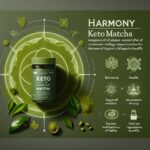Oh, how times have changed. Now, there’s a keto product for practically anything you crave. On the surface, it seems a little too good to be true: How could it be possible to eat pancakes (topped with MCT oil syrup, no less) without breaking ketosis? And it’s confusing to know whether something is truly healthy just because it’s keto-approved; health-washing is pervasive in the food industry, with brands slapping phrases like “free from artificial coloring” or “naturally flavored” on products that are still loaded with sugar and other inflammatory ingredients. Because we’ve reached peak keto, it definitely requires some investigation.
The role of keto foods and products in a healthy diet
First things first: keto-friendly packaged products should not be a replacement for eating a healthy, whole foods-based diet. Not only is that because packaged products (whether they’re keto or not) are often highly processed, but also because truly staying in ketosis requires more effort than just eating foods packed with MCT oil and avocado. In general, adherents are advised to stick to very strict macros: Only 5 to 10 percent of daily calories can come from carbs, while 75 to 80 percent come from fat and 15 to 20 percent from protein. “It’s very hard to stay in ketosis,” integrative medicine and nutrition expert Jaime Schehr, ND, RD, tells me. “A lot of people think they’re in ketosis because they’re limiting their carbs and putting butter in their coffee, but when they actually test their urine to check the ketones, they aren’t in ketosis.” Dr. Schehr says you can’t expect to get there just by living off of keto products; you have to make a conscious effort to hit the macronutrient goals the eating plan requires.
“Your brain doesn’t know the difference if something is sweetened with sugar or stevia.” —Jaime Schehr, ND, RD
That’s not to say all keto products are forbidden; they can give eaters a way to enjoy foods that would otherwise be off-limits. For example, brands use sugar substitutes such as stevia and monk fruit, or alternative flours made from almonds or coconut, to keep their products’ carb count low. While Dr. Schehr says these ingredients likely won’t kick someone out of ketosis, she doesn’t endorse making a habit of eating them on the reg—especially when it comes to sugar substitutes. “One of the benefits of going keto is that you’re retraining your brain to stop craving sugar,” she says. “But your brain doesn’t know the difference if something is sweetened with sugar or stevia, so if you’re just replacing regular cookies with keto cookies, you won’t get that positive behavior change.” While Dr. Schehr says keto desserts are completely fine in moderation, she emphasizes that to really get the max benefits of keto, it’s best to focus on retraining your brain to crave healthier options from whole foods sources.
When keto products turn unhealthy
Like anything else you’re considering adding to your grocery cart, Dr. Schehr says the best way to figure out if a keto product is healthy is by looking at the label. “Consider the ingredients and what value your body is actually getting from them,” she says. Different popular diets will come and go, but she emphasizes that the basic rules of healthy food shopping, such as being able to recognize the ingredients on the label, won’t change. So if you see something with a “keto friendly” label or touts having MCT oil, for example, but is still super processed, it might technically keep you in ketosis—but won’t be doing any other favors for you nutritionally, either. And if it claims to be keto friendly and yet doesn’t fit within your macronutrient requirements for the day, it may not keep you in ketosis, either.
It’s also very possible to go overboard on keto products. Dr. Schehr says if someone is eating their regular keto meals along with adding keto creamer to their coffee, eating a keto bar with their lunch, and so forth, it will obviously increase the amount of calories they’re eating, which could reach an unhealthy level. “A lot of people do the ketogenic diet [for healthy weight management], and they’re not going to see the results they’re looking for if they’re adding high-calorie keto foods on top of what they’re already having as their meals,” she says.
“Nuts, avocado, and eggs are all ‘keto’ but you don’t see them labeled that way at the store.” —Dr. Schehr
Dr. Schehr adds that going above 90 grams of fat a day can backfire, too. “With keto, you want to get to the point where you’re burning fat for energy, but if you consume too much fat, it will end up being stored,” she says.
When it comes to keto products, the point is this: It’s still important to do your label reading and get as close to a whole foods diet as possible. As Dr. Schehr points out, the majority of keto-friendly foods aren’t products, they’re actual foods: “Nuts, avocado, and eggs are all ‘keto’ but you don’t see them labeled that way at the store,” she says. Keto snacks are great when you’re really craving a cookie or ice cream, but nothing beats legit food straight from nature—and that goes for whatever eating plan you adhere to.
If you don’t want to go all-out keto, you might want to consider a slightly different version, the ketotarian diet. Plus, five mistakes people often make when trying to stay in ketosis.









